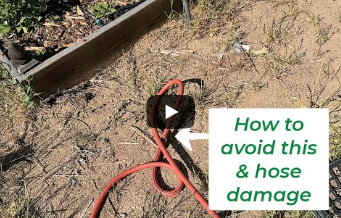Organic gardening has increasingly been garnering attention as a sustainable and healthier approach to cultivating plants. But what exactly does it entail, and why is it important? If these questions have crossed your mind, you are in the right place. This blog post is designed to provide a comprehensive understanding of organic gardening, its benefits, and how you can get started with it. Let’s explore this green gardening method.
Organic Gardening: An Overview
Organic gardening is a unique method of growing plants in a manner that enhances the sustainability of the environment and the overall health of the garden ecosystem. This gardening practice avoids the use of synthetic fertilizers and pesticides, relying instead on natural processes and materials to nurture and protect plants.
At its core, this method is about working with nature and not against it. It encourages soil health, biodiversity, and ecological balance, turning your garden into a rich, thriving habitat.
The Three Pillars of Organic Gardening
Organic gardening is based on three key principles: improving soil health, managing pests naturally, and promoting biodiversity.
1. Soil Health
Healthy soil forms the bedrock of organic gardening. Enriching the soil naturally with organic matter, such as compost, green manure, or kitchen scraps, provides plants with essential nutrients for growth.
Healthy soil teems with beneficial microorganisms and earthworms, which play a vital role in nutrient cycling and improving soil structure. The aim of organic gardening is to cultivate living soil, making it a dynamic, thriving ecosystem in itself. More on soil health: Your Soil Primer
2. Natural Pest Management
Pest management in organic gardening ditches the harmful chemicals and instead relies on natural predators, such as birds, insects, and spiders. Strategies like companion planting and crop rotation are also used to deter pests and disrupt their life cycles.
Organic gardeners may also resort to manual pest control methods, such as hand-picking or using barriers and traps. The key is to maintain a balanced ecosystem where pests are kept under control naturally.
3. Biodiversity
An organic garden is a diverse garden. Organic gardeners aim to include a wide variety of plants to promote biodiversity. A diverse plant range attracts a multitude of beneficial insects and other creatures, creating a balanced and resilient garden ecosystem.
The Benefits of Organic Gardening
Environmental Sustainability
Organic gardening practices are sustainable and environmentally friendly. By enhancing soil health and biodiversity and reducing chemical inputs, organic gardening helps in conserving water, mitigating soil erosion, and reducing pollution.
Healthier Produce
By avoiding synthetic chemicals, organic gardening often yields healthier and tastier produce. Fruits and vegetables grown organically are free from harmful chemical residues and may have higher nutrient content.
Encourages Wildlife
Organic gardens are havens for wildlife. The diversity of plants attracts various beneficial insects, birds, and other creatures, contributing to the conservation of biodiversity.
Cost-Effective
While organic gardening may require more effort initially, it can save money in the long run. Organic gardeners rely more on homemade compost and less on store-bought fertilizers, making it a cost-effective way to garden.
Starting Your Organic Gardening Journey
Start Composting
Composting kitchen scraps and yard waste not only reduces waste but also provides a continuous supply of rich, organic fertilizer for your garden. See our Composting for Beginners.
Choose the Right Plants
Choose plants that are suited to your local climate and soil conditions. Native plants are usually more resistant to local pests and diseases and require less maintenance.
Practice Crop Rotation
Crop rotation disrupts pest and disease cycles and prevents the depletion of soil nutrients. By rotating crops, you can maintain the health and productivity of your soil.
Encourage Beneficial Insects and Birds
Attract beneficial insects and birds to your garden by planting a variety of flowering plants. These creatures help control pest populations, reducing the need for manual pest control.
Use Organic Mulches
Mulching with organic materials, like straw, leaves, or wood chips, helps conserve soil moisture, suppress weeds, and improve soil fertility as they decompose.
Conclusion
In essence, organic gardening is a holistic, environmentally friendly approach to horticulture that brings a range of benefits. While it may take some effort to get started, the satisfaction of cultivating a healthy, thriving garden makes it worth the effort.
Organic gardening not only offers a way to produce healthy, fresh produce right in your backyard but also contributes to a more sustainable future for our planet. Remember, every organic garden is a step towards healthier soil, healthier plants, and a healthier environment.
So, why not give organic gardening a try? Use this guide as your starting point, and embark on your organic gardening journey. We promise it’ll be a rewarding experience!
For further reading, here are some useful resources:
- Organic Gardening – University of California, Agriculture and Natural Resources
- Organic Production – Cornell University, College of Agriculture and Life Sciences
- Learn about Sustainability – U.S. Environmental Protection Agency
- Sustainability – Harvard T.H. Chan School of Public Health
- Economic Sustainability of Organic Farming – University of Florida, IFAS Extension
Recent Posts

The Ultimate Guide to Philodendron Birkin – Care, Tips, and Benefits

Watering Plants – Indoor Edition

The Advantages of Built-Up Garden Beds: A Gardener’s Best Friend

The Secret Weapon for Lush Blooms: How to Create the Perfect Fertilizer Schedule

Create a Stunning Cottage Garden with These Easy-to-Grow Flowers










